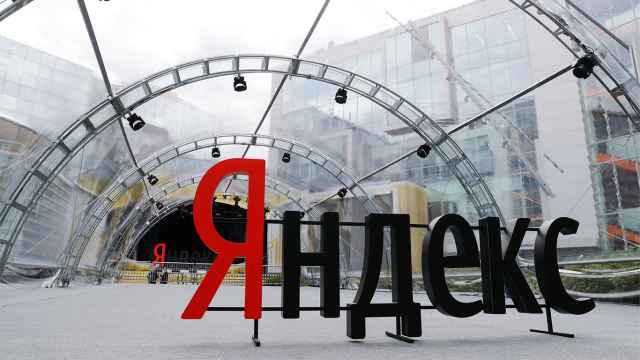Russian technology giant Yandex cut its reliance on advertising revenues last year and saw strong revenue growth, but profits were behind expectations, financial results for 2019 released by the company Friday have shown.
Revenues at the Nasdaq-listed firm were up 37% over the year to $2.8 billion, with profits coming in at a headline $380 million. However, that was below what analysts had pencilled in, pushing Yandex’s share price down 4% from recent record highs. Stocks in the tech behemoth were trading at $46.57 on Tuesday morning in New York.
Yandex’s diversification away from advertising revenues intensified, with ad income accounting for 70% of total revenues — a significant reduction from the 96% recorded in 2016. The shift was led by a surge in income at Yandex's "Taxi" accounting segment, which now accounts for more than one in every five rubles the firm takes in.
That division includes not only the ride-hailing joint venture formed with Uber in 2017, but also Yandex’s self-driving cars division and food tech businesses including restaurant delivery service Yandex Eats and grocery delivery arm, Yandex Lavka. This entire segment turned profitable for the first time last year, with earnings before interest, tax, depreciation and amortization (EBITDA) of 271 million rubles ($4.25m) in the final quarter of the year, up from a loss of 129 million rubles in the same period in 2018 ($2m).
Nevertheless, search remains Yandex’s primary cash cow, and it consolidated its position as the market leader ahead of Google, with its market share inching up from 56.5% to 57.5%, according to data from Yandex Radar. The company added that it expects the new Russian law mandating the pre-installation of Russian software on smartphones to have a positive impact on the company’s dominance in the search market.
“The increase of adjusted EBITDA was driven by the improving profitability of our ride-hailing business, partially offset by investments in autonomous vehicles and food tech initiatives as we expanded our autonomous vehicles fleet and launched Yandex.Lavka service,” the company said.
The results cap off a turbulent 2019 for Yandex, which saw its share price rocked by proposed legislation to restrict foreign ownership at Russian technology companies.
The year culminated in a major overhaul of its governance structure, following 13 months of negotiations with the Kremlin. A new public interest foundation and board, made up of Yandex senior management and external directors was registered in Kaliningrad and handed veto power over significant ownership transactions and business operations concerning customer data. The structure seeks to address the Russian government’s concerns that the U.S.-listed company — seen as a critical piece of Russia’s national online infrastructure — could be bought-out and controlled by foreign shareholders.
In terms of acquisitions, the company snapped up Q&A service TheQuestion and online ticketing platform TicketSteam. Yandex Taxi is reportedly considering an initial public offering (IPO), which could value the spin-off at between $5-8 billion, while its promising driverless car business will be put into a separate business arm.
At the same time, the firm’s alliance with Sberbank weakened following Yandex rejecting a takeover bid from Russia’s largest bank at the end of 2018. Sberbank shifted its attention to Mail.Ru, Yandex’s main rival, as its preferred technology partner, with significant tie-ups on food delivery and ride-hailing ventures.
Even though some industry observers said Sberbank’s actions amounted to an “informal declaration of war” on Yandex, the two companies are still tied through two joint ventures: Yandex.Money, a market leader in electronic payment services, and the Yandex.Market group of companies, which operates e-commerce marketplaces.
With its relationship with the Kremlin and Sberbank seemingly stable for now, in 2020 Yandex could benefit of Russian laws on data localization and pre-installed software designed to support the domestic internet industry.
A version of this article first appeared on East-West Digital News.
A Message from The Moscow Times:
Dear readers,
We are facing unprecedented challenges. Russia's Prosecutor General's Office has designated The Moscow Times as an "undesirable" organization, criminalizing our work and putting our staff at risk of prosecution. This follows our earlier unjust labeling as a "foreign agent."
These actions are direct attempts to silence independent journalism in Russia. The authorities claim our work "discredits the decisions of the Russian leadership." We see things differently: we strive to provide accurate, unbiased reporting on Russia.
We, the journalists of The Moscow Times, refuse to be silenced. But to continue our work, we need your help.
Your support, no matter how small, makes a world of difference. If you can, please support us monthly starting from just $2. It's quick to set up, and every contribution makes a significant impact.
By supporting The Moscow Times, you're defending open, independent journalism in the face of repression. Thank you for standing with us.
Remind me later.







